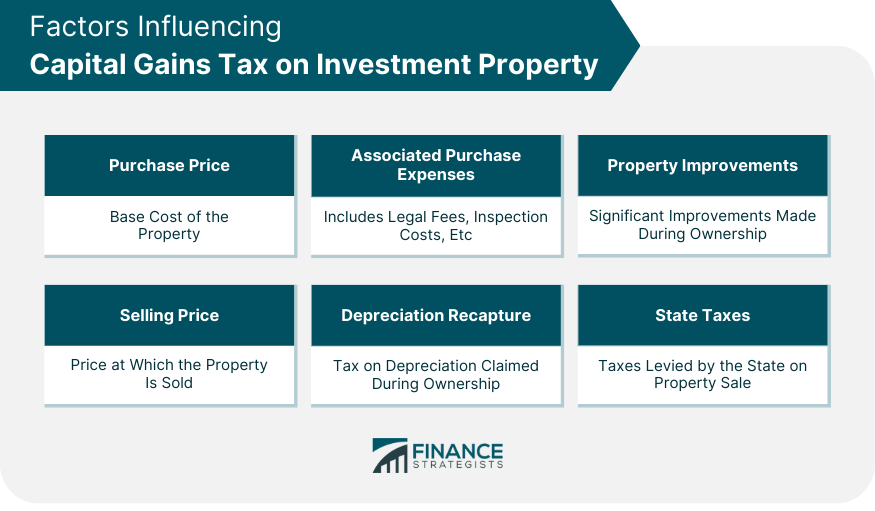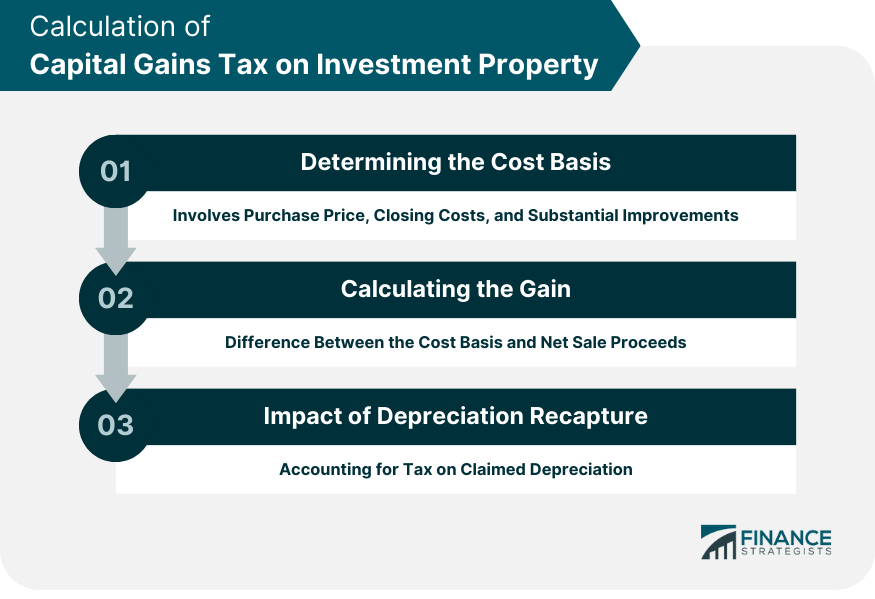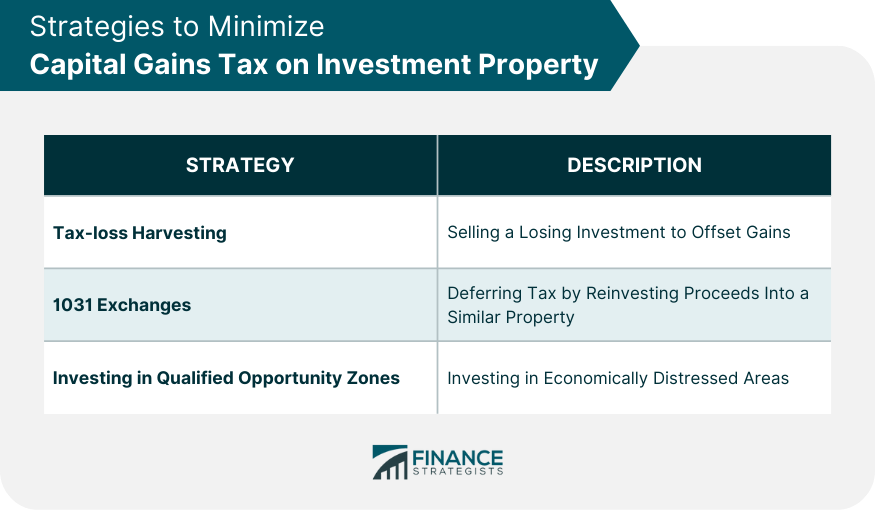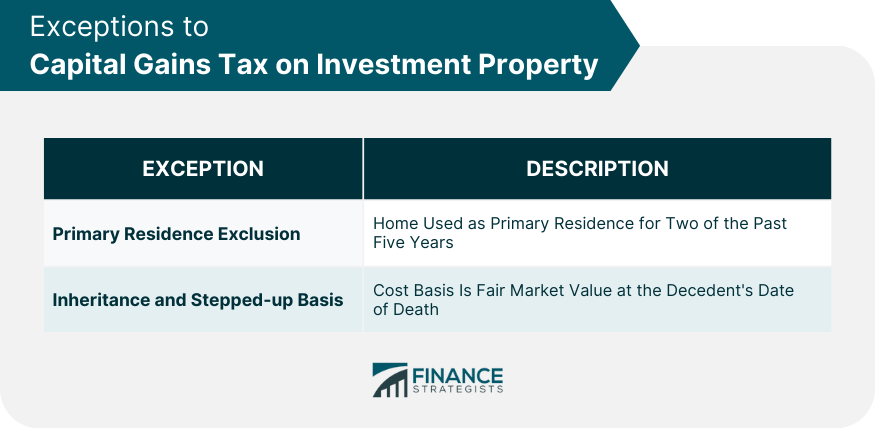Capital gains tax on investment property is levied on the profit, or "capital gain," earned from the sale of the property. This gain is calculated by subtracting the cost basis (original purchase price plus expenses and improvements) from the selling price. The tax rate depends on the duration of property ownership: short-term (less than one year of ownership) or long-term (more than one year). Short-term capital gains are taxed as regular income, while long-term gains enjoy more favorable tax rates, ranging from 0% to 25%, depending on the taxpayer's income bracket. Strategies like tax-loss harvesting, 1031 exchanges, or investing in Qualified Opportunity Zones can help minimize this tax. Furthermore, specific exceptions and recent tax law changes can influence the capital gains tax liability on an investment property.
I'm Taylor Kovar, a Certified Financial Planner (CFP), specializing in helping business owners with strategic financial planning. Maximize your investment property's potential by leveraging tax-efficient strategies for capital gains. Consider timing sales to align with lower income years, utilizing a 1031 exchange to defer taxes, or investing in improvements to increase the property's basis. Capitalize on tax breaks and consult with a professional to navigate complex tax laws effectively. Let's strategize your approach to capital gains tax and elevate your portfolio. Contact me at (936) 899 - 5629 or [email protected] to discuss how we can achieve your financial objectives. WHY WE RECOMMEND: IDEAL CLIENTS: Business Owners, Executives & Medical Professionals FOCUS: Strategic Planning, Alternative Investments, Stock Options & Wealth Preservation One of the primary factors that influence capital gains tax on investment property is the purchase price of the property. This forms the base cost of the property, also known as the cost basis, from which any gain or loss is calculated. Expenses incurred during the acquisition of the property also contribute to the overall cost basis. These include costs such as legal fees, inspection costs, and registration fees. By inflating the cost basis, these expenses can potentially reduce the capital gain when the property is sold. The cost of significant improvements made to the property during the period of ownership also affects the capital gains tax. Such improvements increase the cost basis of the property and, hence, decrease the potential capital gain. Note that these must be substantial improvements that add value to the property, like an added room or upgraded kitchen, not mere repairs or maintenance. The selling price of the property directly influences the capital gain or loss, which is the difference between the selling price and the cost basis. A higher selling price could result in a higher capital gain and subsequently, a higher tax liability. Depreciation recapture is a significant factor influencing the capital gains tax on investment properties. During the ownership period, property depreciation can be used to reduce taxable income. However, upon sale, the IRS requires owners to pay tax on the amount of depreciation claimed. This is known as depreciation recapture, which can increase the overall tax liability. In addition to federal capital gains tax, many states also levy their own taxes on the sale of investment properties. The rate and rules for these state taxes can vary widely, so the location of your property can significantly impact your overall tax bill. It includes the original purchase price, closing costs, and the cost of any substantial improvements made to the property during ownership. It does not include costs related to property repairs or maintenance. Once the cost basis is established, the capital gain or loss can be calculated. This is achieved by subtracting the cost basis from the net proceeds of the sale of the property. If the resulting number is positive, there is a capital gain. Conversely, a negative number implies a capital loss. While depreciation on rental properties provides a tax advantage by reducing taxable income annually, the IRS recaptures the depreciation when you sell. The depreciation recapture rate is currently capped at 25%, which may significantly impact the overall capital gains tax owed. One effective strategy to minimize capital gains tax is tax-loss harvesting. This involves selling off a losing investment to offset the gains from the sale of a profitable investment. Although this doesn't entirely eliminate the capital gains tax, it can reduce the overall tax burden. Named after Section 1031 of the Internal Revenue Code, a 1031 exchange allows investors to defer capital gains tax by reinvesting the proceeds from the sale of an investment property into a similar or "like-kind" property. Specific rules and timelines apply to this exchange, making it vital to understand these intricacies or work with a professional. Investing in Qualified Opportunity Zones (QOZs) provides another avenue to minimize capital gains tax. By reinvesting capital gains into these economically distressed areas, investors can defer and potentially reduce their capital gains tax obligations, provided certain conditions are met. The primary residence exclusion is a notable exception to capital gains tax. This rule allows homeowners to exclude up to $250,000 ($500,000 for married couples filing jointly) of capital gains on the sale of their primary residence, provided they meet certain criteria, including using the home as their primary residence for two of the five years before the sale. Inherited properties receive a "stepped-up basis," which means the cost basis is the fair market value of the property at the decedent's date of death, not the original purchase price. This can significantly reduce capital gains tax liability when the heir decides to sell the property. The landscape of capital gains tax laws is subject to change. Over the years, various updates have affected the tax rates, exclusion rules, and more. Keeping abreast of these changes is crucial for investors to optimize their tax strategies. Recent changes to capital gains tax laws have a direct impact on investors. For instance, changes to the 1031 exchange rules or the rates for long-term capital gains tax could significantly affect investment strategies and overall returns. Understanding the capital gains tax on investment property is essential for effective financial planning. The tax is calculated based on the capital gain, which takes into account the purchase price, associated costs, property improvements, and the selling price. Influential factors include depreciation recapture and state taxes. Strategies such as tax-loss harvesting, 1031 exchanges, and investing in Qualified Opportunity Zones can help mitigate tax liability. Notable exceptions like the primary residence exclusion and inheritance rules can offer significant tax relief. Recent changes to capital gains tax law also necessitate continuous learning and adaptation. Altogether, thorough comprehension and strategic management of capital gains tax can optimize investment returns and support sound property investment decisions.What Is Capital Gains Tax on Investment Property?
Learn From Taylor

Fee-Only Financial Advisor
Certified Financial Planner™
3x Investopedia Top 100 Advisor
Author of The 5 Money Personalities & Keynote Speaker
Factors Influencing Capital Gains Tax on Investment Property
Purchase Price of the Property
Associated Purchase Expenses
Property Improvements
Selling Price of the Property
Depreciation Recapture
State Taxes

Calculation of Capital Gains Tax on Investment Property
Determining the Cost Basis
Calculating the Gain
Impact of Depreciation Recapture

Strategies to Minimize Capital Gains Tax on Investment Property
Tax-Loss Harvesting
Like-Kind Exchanges or 1031 Exchanges
Investing Through Qualified Opportunity Zones

Exceptions to Capital Gains Tax on Investment Property
Primary Residence Exclusion
Inheritance and Stepped-up Basis

Impact of Recent Changes to Capital Gains Tax Law on Investment Property
Updates and Revisions in the Tax Law
Impact on Investors
Conclusion
Capital Gains Tax on Investment Property FAQs
Capital gains tax on investment property is a tax levied on the profit made from the sale of an investment property. The rate of tax depends on how long the property was held before selling and the seller's income bracket.
The capital gains tax on investment property is calculated by subtracting the "cost basis" (purchase price plus improvements and associated costs) from the selling price of the property. If the result is positive, it's a capital gain and is subject to tax.
While you can't completely avoid capital gains tax on investment property, you can minimize it using strategies such as tax-loss harvesting, conducting a 1031 exchange, or investing in Qualified Opportunity Zones.
Short-term capital gains tax, applicable to properties held for less than a year, is taxed as regular income, which could be as high as 37%. Long-term capital gains tax, applicable to properties held for more than a year, can range between 0% to 25%, depending on the taxpayer's income.
Changes in tax laws can significantly impact capital gains tax on investment property by altering tax rates, revising rules for exemptions, or introducing new provisions. These changes can directly influence an investor's tax liability and overall return on investment.
True Tamplin is a published author, public speaker, CEO of UpDigital, and founder of Finance Strategists.
True is a Certified Educator in Personal Finance (CEPF®), author of The Handy Financial Ratios Guide, a member of the Society for Advancing Business Editing and Writing, contributes to his financial education site, Finance Strategists, and has spoken to various financial communities such as the CFA Institute, as well as university students like his Alma mater, Biola University, where he received a bachelor of science in business and data analytics.
To learn more about True, visit his personal website or view his author profiles on Amazon, Nasdaq and Forbes.















